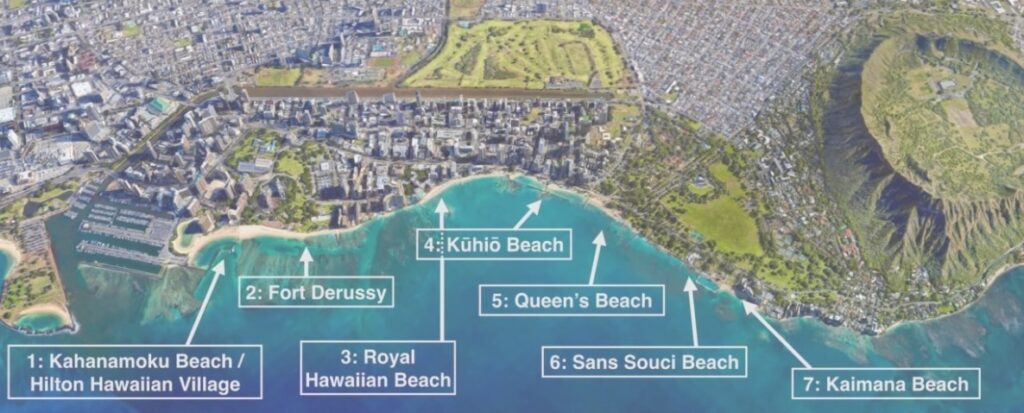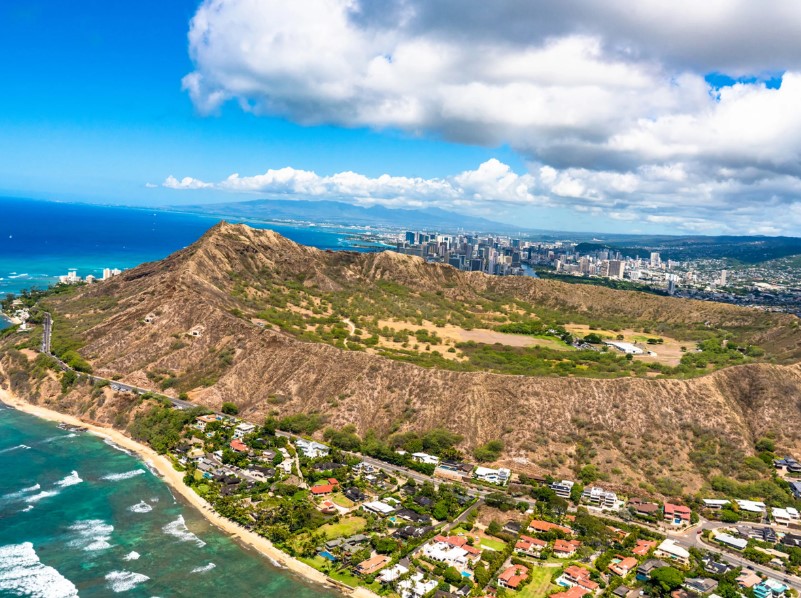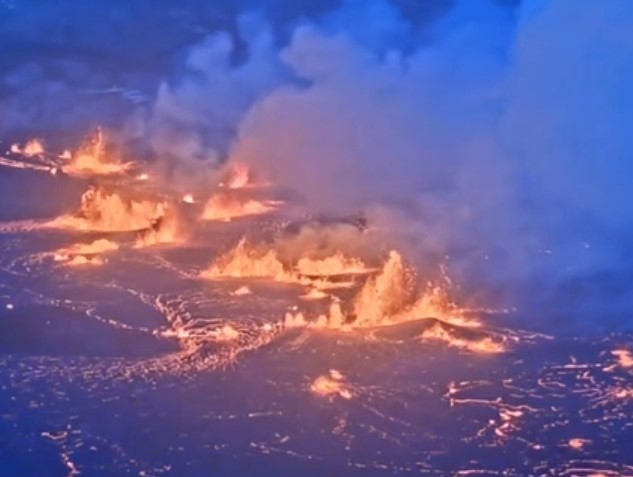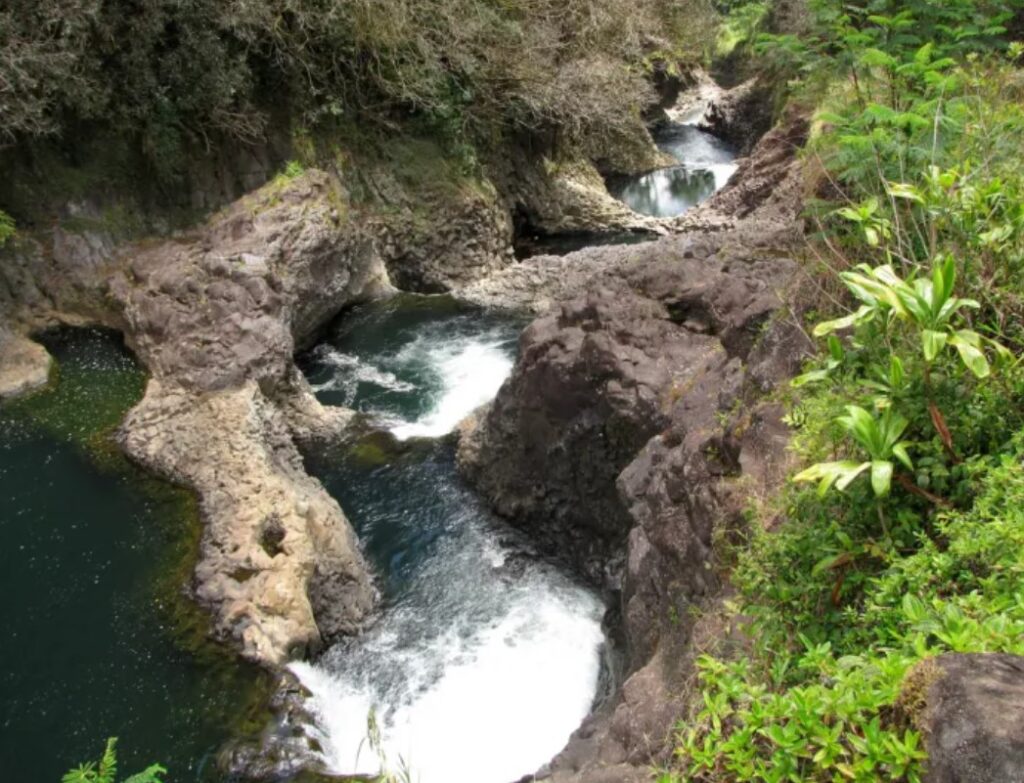
Hawaii is an island state of the US that lies about 3,200 km off (southwest) the US mainland. The state is made up of 137 volcanic islands that comprise almost the entire Hawaiian archipelago.
There are eight main islands (Niʻihau, Kauaʻi, Oʻahu, Molokaʻi, Lānaʻi, Kahoʻolawe, Maui, and Hawaiʻi) with the biggest of the islands (Hawaii) giving the area its name. However Hawaii (the island) is more commonly known as the “Big Island” or “Hawaii Island” to avoid confusion with the state or archipelago.
The islands were originally settled by Polynesians sometime between 1000 and 1200 CE. In 1778, British explorer James Cook was the first (recorded) non-Polynesian to arrive at the archipelago prompting an influx of European and American explorers, traders, and whalers. This led to a virtual decimation of the indigenous community.
Cost
The first thing that we were told (and then were told repeatedly throughout our time in Hawaii) was that everything in Hawaii is 40% more expensive than it is on the mainland as everything must be shipped in. The cost of landing a container into LA is $6-700 but this balloons to $1200 to land it in Hawaii. As such, you are paying a premium for almost everything around.
This became evident while travelling around, not so much from the prices (which were high) but from the lack of staff. People could simply not afford to live there so had migrated to the mainland. Lower paying jobs were advertised everywhere we walked. Shop workers, waiters, cleaners, housekeeping and hospitality staff were needed everywhere.
Weed
As with almost everywhere in northern America weed is everywhere. You cannot walk down the street (anywhere) without being hit by a waft of weed at least every 10 minutes and more often than not, way more frequently.
Oahu (Honolulu), Hawaii
Oahu is the third largest of the Hawaiian Islands and one of the most popular tourist destinations. It is best known for its beaches (notably Waikiki Beach), lush tropical forests, and culture. The northern shore of Oahu is considered the mecca of surfing, attracting professional surfers worldwide.
Probably the most important thing about Oahu is that it holds Pearl Harbour a site of immense historical significance in the US and the trigger event for the US to join WWII. On December 7th, 1941 at 7:48 a.m. the Japanese Navy launched a surprise attack on Pearl Harbor. All 8 of the US warships in Pearl Harbor were damaged, and 4 of them were sunk. The raid damaged a total of 21 ships and resulted in the death of many people.

The next most famous is “Waikiki Beach”. While generally just described as Waikiki it is actually a series of beaches stretching the bay and covering around 3.2 km of the shoreline. The place is lined with hotels, packed with tourists and is obscenely overpriced. My memories of this place (from way back in 1996) was that it was the Gold Coast with shitty beaches. Interestingly, Jill’s impression of Waikiki was pretty much identical.
Our foray saw us landing on a Sunday to a very quiet and clean city that seemed highly functional. The roads were wide, clean, with footpaths and a well functioning public transportation system (albeit at reduced intervals being a Sunday). Bus number 20 runs right past the cruise ship terminal, through the heart of Waikiki and on to the famous Diamond Head Crater.
This volcanic remnant is one of Hawaii’s most recognised landmarks and covers about 475 acres. Common practise is to do the steep 3 km hike up to the top for the views.
I am not common.


Iolani Palace is the only royal palace in the US. It was built between 1879 and 1882, and was once home to two monarchs of the Kingdom of Hawaii.
Having been locked on a ship for a few sea days in a row, we were keen on getting off the boat and stretching our legs. So off we went hugging the shoreline and taking in the beautiful Ala Moana Park. After a nice hike, we ended up at the Ala Moana shopping Center which is the world’s largest open-air shopping center. Here we found a Yum Cha restaurant and had a much needed Asian food fix.



Hilo, Hawaii
Hilo is a town on (the big island) Hawaii and is mostly known for being the home to the Hawaii Volcanoes National Park. If you are lucky (which we were not) this is where you can see the flowing and glowing lava.

Being very keen to see this we paid top dollar to join a tour that would take us to the National Park and more specifically to the Kilauea and Mauna Loa volcanoes. The Kilauea volcano last erupted in September 2023 and recent (minor) earthquake activity had been measured in the area raising the likelihood of opening some fissures and providing the magic views that we were after. But sadly, we were just met with moonscape type scenes as we stared over lava fields and the caldera remnants.




The Wailuku River State Park was our first port of call to take in the Waianuenue, or Rainbow Falls. The Rainbow Falls cascade 80 ft over a lava cave that, according to legend, is home to the ancient Hawaiian goddess Hina, the goddess of the moon. A morning visit will let you see the rainbow effect.





The Boiling Pots are a series of cascading waterfalls along columns that were formed from the slow cooling of basalt lava, these pools appear to be bubbling – almost as if they were boiling.

Next stop was to the Thurston Lava Tube which was formed 500 years ago when when low viscosity lava formed a hard crust that thickened and formed a roof over the still-flowing lava. This lava tube is paved and lighted providing a safe and easy way to visit.







The tube itself is around 200m long and is a short stroll from the road. The access is down a steep path and the return involves some steps and a bit of an uphill hike.
Our timing for this (highly priced) tour was not ideal, but the biggest issue that we faced was the age and mobility of our fellow travellers. Despite clear descriptions of the levels of activity involved, there were at least 40% of our group who were not up to the walking, stairs and terrain that was involved.
This meant that it ran REALLY slowly, with excess time allotted for the old and infirmed. This also created major traffic jams behind the slow and doddery and meant that some of the more interesting items we were simply told about, as we were forced to drive past them without stopping due to the time and mobility of those on board.

King Kamehameha is credited with uniting the Hawaiian Islands into one royal kingdom in 1810 during a time of increasing western influence (Captain Cook).
His legendary strength and ferocity as a warrior was tempered by his diplomatic skill and his love for the Hawaiian people.
As you would expect, the tour finished at a series of obscenely priced trinket shops but not before stopping at some natural vents where the water meats the thermal rocks and produces steaming vents. This was of course billed as the location for your own private facial.



Kauai (Nawiliwili), Hawaii
Kauai is another of the Hawaiian islands that has been nicknamed “the Garden Isle” thanks to the tropical rainforest covering much of its surface. The dramatic cliffs has made it a popular destination for the filming of many Hollywood movies.






While there was not too much here to play with, it was the prettiest of the islands that we visited and would top the list of places to go back to in Hawaii. We bounced around the local township (Nawiliwili) and checked out the local beach.
Further examination revealed that if we had gone a little further afield there was the usual Hawaiian activities of snorkelling, sailing, kayaking, waterfalls and rafting all on offer.
On the whole our adventures in Hawaii were nice. The scenery is beautiful, the people are friendly and the beaches are OK. Being Aussies we are spoilt for beaches and our level and idea of what makes a good beach is considerably more elevated than most.
Americans and Guns
This is a bit of a sideline more than anything else. While sitting on our incredibly overpriced and slow tour of Hilo with the oldies there were a bunch of people smoking in the National Park (mostly weed). So one couple next to me queried me as they thought that it was illegal to smoke within the national park. At this point they went into a long diatribe about how bad it was and that the rangers should stop it.
Their solution was that the rangers were highly armed, so they should be able to stop the smoking within the national park. At this point I turned around and looked directly at them and asked if they really believed that the park rangers should wander about shooting people for smoking. Their response was that the rangers had guns. I then asked if they seriously thought that that was reasonable.
At this point I turned away from them and made a loud statement that I was so glad that we lived in Australia if this was the American attitude towards responsible gun use. They did not talk to me again.